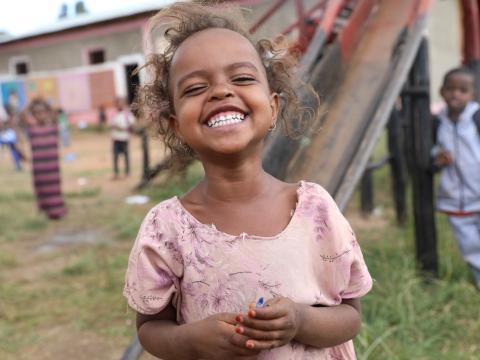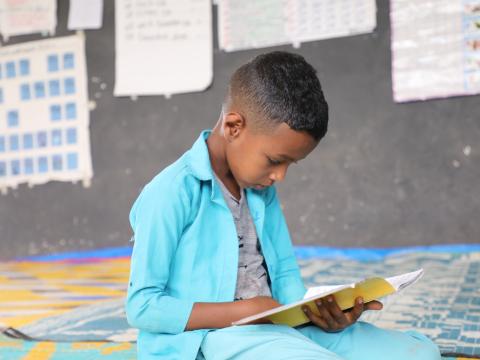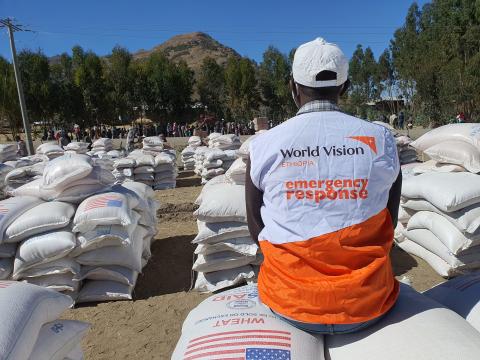
Child Protection
The Child Protection and Participation (CPP) technical Programme is dedicated to enhancing the protection of boys and girls from abuse, neglect, exploitation, and all forms of violence. In communities where cultural norms support harmful traditional practices, children are particularly vulnerable to abuse, neglect, and exploitation.
The technical programme strives to address these issues and create a safer environment for children at family, community and institutional levels.

Education
Starting Education Early for Children has a huge positive impact on children's learning.
World Vision Ethiopia's contribution to education dates back to the early 1970s when the organisation started its operation in Ethiopia. Since then, the organisation reached and benefited Vulnerable children from the most marginalised communities making them educated for life in achieving their full potential.
Through models like Early Childhood Development, Unlock Literacy, and Basic Education School Improvement Programme.

Humanitarian and Emergency Affairs
The Humanitarian Emergency Affairs (HEA) department is leading humanitarian responses across 10 regions in Ethiopia, addressing the needs of the most vulnerable children and communities. Through emergency interventions in WASH, health, nutrition, education, protection, and shelter, HEA operates across the disaster management cycle, from early warning to recovery.
HEA is managing several emergency responses, including the Sustained Humanitarian Response, Global Hunger Response, Sudan Crisis and Migration Emergency Response, Ethiopia Earthquake Response and Ethiopia Amhara Polycrisis. These efforts have been supported by a dedicated humanitarian workforce, ensuring that communities receive life-saving assistance.
Water, Sanitation and Hygiene (WASH)
Access to WASH is crucial as it directly impacts health, economic development, education, and environmental sustainability by preventing disease, improving quality of life, and fostering healthier, more thriving communities.
World Vision Ethiopia's WASH programme significantly impacted communities across diverse geographic areas, focusing on the improvement of nutritional status by reducing WASH-related diseases. The program delivered clean water to communities, schoolchildren, and healthcare facility users. Sanitation efforts reached communities, schoolchildren, and healthcare facility users, resulting in multiple Kebeles achieving Open Defecation Free status and the construction of thousands of latrines. Hygiene services were provided to numerous people, including menstrual health support for schoolgirls. To ensure sustainability, the program trained WASH committees, school clubs, business entrepreneurs, and faith leaders.
Livelihood and Resilience
The Integrated Livelihoods and Nutrition Security Technical Programme (ILaNS TP) aims to address community food and nutrition insecurity by combining interdependent programmes such as Resilient Agriculture and Environmental Sustainability, Economic Development, and Integrated Nutrition.
Under our Farmer Managed Natural Regeneration (FMNR) programme, we continue to use low-cost land restoration techniques to combat poverty and hunger among low-income farmers by increasing food and timber production and climate resilience.
Our Energy Efficient Cook Stoves Projects have improved women's saving practices through cooperatives while also providing safety, protection, fuel, and time savings.